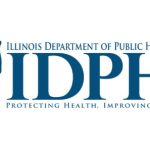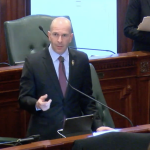
Illinois HIV Care Connect introduces HIV and aging campaign
In advance of National HIV/AIDS and Aging Awareness Day on Sept. 18, Illinois HIV Care Connect today introduces its HIV and Aging Campaign. Persons aged 50 and older comprise nearly half of persons living with HIV in Illinois. The campaign’s website content and social media posts will emphasize actions older adults with HIV can take to increase their chances of living long and healthy lives.
The 16,198 persons who are 50+ living with HIV in Illinois represent 45% of all persons living with HIV in Illinois, according to Illinois Department of Public Health (IDPH) 2019 data found on the Illinois Getting to Zero HIV Dashboard. About 60% of Illinois residents over the age of 50 living with HIV are men who have sex with men, and most are persons of color.
The relatively high percentage of persons living with HIV who are aged 50 or older is due to improvements in the effectiveness of treatment with HIV medicine (called antiretroviral therapy or ART). Persons with HIV who are diagnosed early and who get and stay on ART can keep the virus suppressed and live long and healthy lives.
“Life for persons living with HIV is significantly different than it was during the early years of the epidemic when those diagnosed with HIV could expect to live only a year or two,” said Michael Maginn, HIV prevention director, Illinois Public Health Association, which manages Illinois HIV Care Connect with funding from the Illinois Department of Public Health. “As a result, we have many survivors who have reached age 50 and beyond. By taking their medications, staying in care and achieving viral suppression, older adults with HIV increase their life expectancy.”
Late HIV diagnoses remain a challenge for adults aged 50 and older
According to the most recently available IDPH data, an all-time low of 185 new diagnoses of HIV occurred among persons aged 50 and older in 2019. However, 28% of these diagnoses were late diagnoses. Late diagnoses mean an individual gets a late start on receiving the benefits of HIV treatment and possibly incurs more damage to their immune system, sometimes resulting in a poorer prognosis and shorter survival time.
An Illinois HIV Care Connect HIV and Aging webpage provides data on the age 50 and older HIV population in Illinois. In addition to data about new and late diagnoses, the page includes information about the percentages of the age 50 and older population who have achieved viral suppression and who are engaged in care, as well as about progress toward Illinois Getting to Zero HIV improvements targeted for persons aged 50+.
The #HIVandAging Campaign will be visible on Illinois HIV Care Connect’s Twitter, Facebook and Instagram social media platforms. An HIV and Aging Quiz offers an easy way to understand how to stay healthy while aging with HIV.
The HIV and Aging Campaign is Illinois HIV Care Connect’s ninth annual quality improvement initiative, following programs on HIV innovation in Illinois, HIV stigma, HIV and youth, social determinants of health, HIV treatment as prevention, viral suppression, staying in HIV care, and HIV and mental health.






